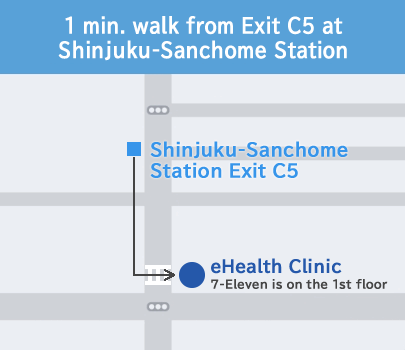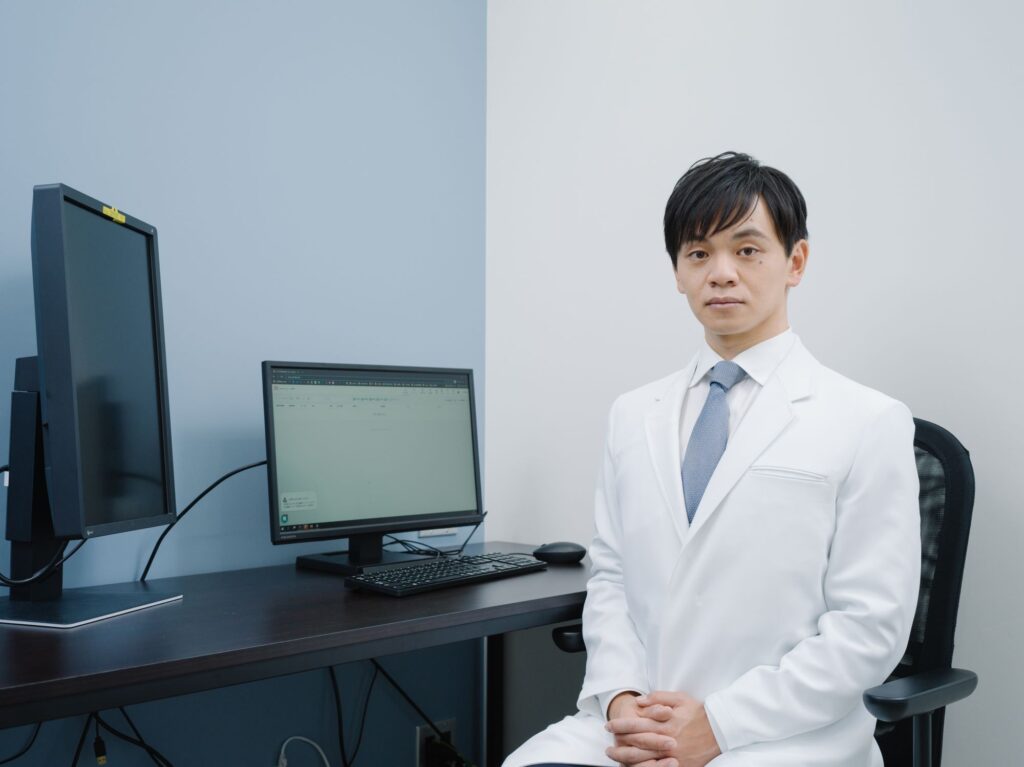[3] What is the treatment process for Chlamydia? ~Types of antibiotics and duration of treatment~
Chlamydia is said to be the most common sexually transmitted infection (STI) among Japanese individuals, with the potential for anyone to become infected. STIs refer to all diseases that are transmitted through sexual activity, and Chlamydia, primarily transmitted through sexual intercourse or similar activities, can be passed from person to person.
It is a disease that predominantly affects young women and carries the possibility of leading to infertility or mother-to-child transmission. STIs, including Chlamydia, do not typically resolve naturally, so it is necessary to seek treatment.
Symptoms of Chlamydia
In males, common symptoms include pain or discomfort during urination, a discharge with pus from the urethra. In females, mild symptoms may include increased vaginal discharge, thick yellowish discharge, abdominal pain, or irregular genital bleeding.
However, approximately 75% of infected women and 50% of infected men may be asymptomatic and not realize they are infected. If left untreated, Chlamydia can lead to complications such as ectopic pregnancy, pelvic inflammatory disease, and infertility.
In this article, we will explain the treatment of Chlamydia.
At the Sexual Infection Clinic of E-Health Shinjuku, treatment for Chlamydia begins with conducting tests before initiating treatment. The specific treatment process is as follows:
Testing and Prescription of Medication
Before treatment, we first conduct tests to confirm the presence of Chlamydia infection. The testing is performed using samples such as urine, genital secretions, or gargle fluid, depending on the suspected site of infection.
The testing method used is called “Simultaneous Identification of Gonorrhea and Chlamydia Trachomatis DNA,” which is an antigen test. It examines urine, secretions, or gargle fluid as specimens. This testing method has the advantage of simultaneously detecting both Neisseria gonorrhoeae and
Chlamydia trachomatis, which are the pathogens of the same sexually transmitted infection. By amplifying the DNA within Chlamydia through a method called polymerase chain reaction (PCR), the sensitivity of detection is increased, and the amount of antigens is measured.
If you visit the clinic, same-day testing is generally available, and the test results are typically available within approximately 4 to 5 days. Additionally, medication prescriptions are provided on the same day, allowing you to start treatment immediately after your visit.
Medication Administration
The treatment for Chlamydia involves the use of antibiotics. Antibiotics are medications that can destroy bacteria or inhibit their growth. By following the physician’s instructions and taking the medication correctly and promptly, the symptoms can usually be alleviated.
There are different types of antibiotics, but the first-line medication for Chlamydia is a macrolide antibiotic called Azithromycin (Zithromax). Typically, tablet form medications are prescribed, and the treatment is completed with a single dose, which is advantageous.
At our clinic, we also prescribe Azithromycin (Zithromax). Generally, a single dose of four tablets (1000mg in total) is taken. It is important to follow the instructions of the physician or pharmacist and take the medication correctly in the prescribed duration and quantity.
It is worth noting that Chlamydia does not have a cell wall (a membrane that covers cells), so antibiotics such as penicillins, cephalosporins, or carbapenems that exert their effects through the cell wall have no efficacy against it. Therefore, it is important to refrain from self-medication or taking medications obtained from others. Additionally, common side effects of Azithromycin may include diarrhea, abdominal pain, and nausea. If you notice any concerning symptoms, do not hesitate to consult with a physician or pharmacist.
Re-testing
Long-term control medications are used to prevent asthma attacks by reducing airway inflammation. Typically, inhaled corticosteroids to reduce airway inflammation and bronchodilators to widen the airways are commonly used.
Inhaled corticosteroids have a direct effect on the airways and are effective even in small doses, with fewer side effects compared to long-term oral medications or intravenous treatments. It is important to note that long-term control medications take time to show their full effects. While symptoms may improve quickly upon starting the medication, inflammation may still be present, so it is crucial not to discontinue the medication without medical guidance.
Points to Note in the Treatment of Chlamydia
It is crucial to take antibiotics in the correct dosage and duration as instructed by the physician or pharmacist. Using medication based on personal judgment can lead to a resurgence of bacterial activity, making the infection more difficult to cure and prolonging the treatment process.
Furthermore, it is important to note that acquiring Chlamydia or other STIs does not confer immunity. Even after complete recovery, there is a risk of reinfection if your partner is also infected. To prevent the so-called “ping-pong infection” between partners, it is essential for both individuals to undergo treatment simultaneously.
Avoiding Sexual Intercourse
To avoid these triggers, make an effort to maintain a clean living environment, engage in stress-reducing activities, and take necessary precautions. By avoiding these factors that can exacerbate asthma, you can help manage your condition effectively.
Informing Your Partner
Since there is a possibility that your partner may already be infected, it is important to inform them promptly if you test positive or experience concerning symptoms. It is known that partners can infect each other, so undergoing treatment simultaneously is crucial. Therefore, even if your partner doesn’t show symptoms, considering visiting the clinic together is recommended.
Consult a Doctor for any Concerns or Questions about Chlamydia
If you have any concerns or questions regarding Chlamydia, it is advisable to consult a doctor. It is understandable that some individuals may feel anxious about seeking treatment at a hospital or clinic for Chlamydia. However, there are no over-the-counter treatments available, and STIs do not resolve on their own. It is important to seek appropriate medical treatment instead of leaving it untreated. If you have any uncertainties about Chlamydia, don’t hesitate to consult a doctor.
At the e-Health Clinic Shinjuku branch, we provide consultations for sexually transmitted infections. While it is a fee-based service, we also offer online consultations to ensure that anyone can seek medical care with peace of mind. We prioritize patient privacy to the fullest extent. If you have any concerns, please feel free to reach out to us.



